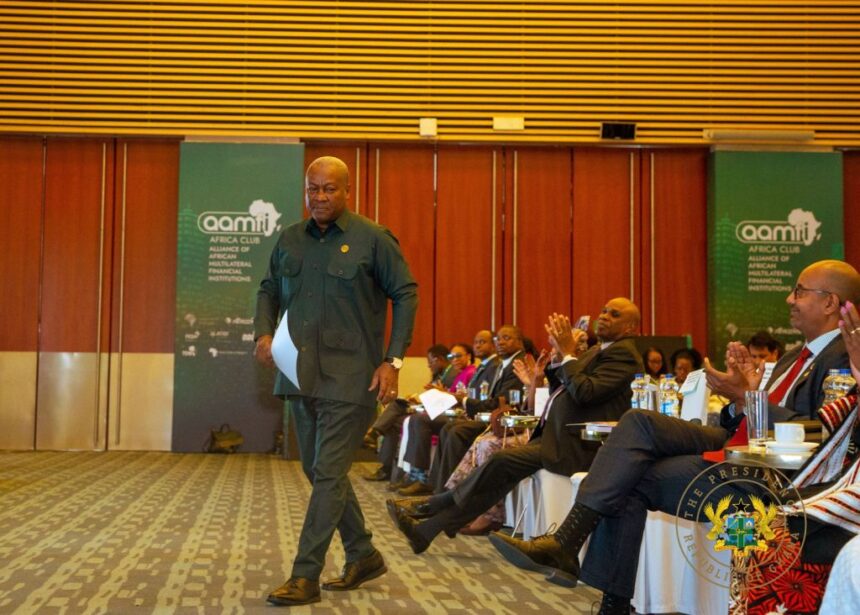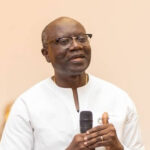President John Dramani Mahama has urged African nations to enhance domestic resource mobilisation to reduce reliance on external funding and to foster sustainable economic growth.
Speaking at a “Heads of State and Government Breakfast Dialogue” during the African Union (AU) Summit, Mr Mahama emphasised the continent’s resilience in the face of ongoing challenges, forecasting a growth recovery of 3.7 per cent in 2024 and 4.03 per cent in 2025.
“This optimistic outlook underscores the robust nature of our economies and the success of our policy interventions,” stated President Mahama, the African Union’s Champion for Financial Institutions.
The dialogue was on the theme, “Africa at the Forefront: Mobilising African Investment and Financing for Implementing Agenda 2063.
President Mahama hosted the event, organised in partnership with the Alliance of African Multilateral Financing Institutions (AAMFI)— often referred to as the African Club—and gathered esteemed officials from various multilateral organisations.
Notable attendees included Professor Benedict Oramah, Chairperson of the AAMFI and President of Afreximbank; Dr Ngozi Okonjo-Iweala, Director General of the World Trade Organization (WTO); and Dr Donald Kaberuku, African Union High Representative for Financing of the Union and the Peace Fund.
President Mahama warned of significant hurdles facing the continent despite the encouraging economic forecast. “While we see positive trends, we must acknowledge that our growth hasn’t consistently translated into improved per capita incomes.
Structural transformation remains uneven, with many economies reliant on low-productivity sectors,” he noted.
He emphasised the urgency of addressing a challenging financing gap estimated at approximately $402 billion annually until 2030.
“This gap is more than just a figure; it signifies the unrealised aspirations of countless Africans whose hopes for a better future hinge on our capacity to invest wisely in crucial areas like infrastructure, education, technology, and health.”
In addition to financial constraints, Mr Mahama pointed out other challenges, including climate issues, geopolitical tensions, and potential disruptions from diseases and pandemics. He stressed the importance of strategic investments in critical sectors and acknowledged the substantial financing gap needed to support these initiatives.
To bridge this, Mr Mahama proposed a multifaceted strategy that encompasses strengthening domestic resource mobilisation, improving tax administration, and mitigating illicit financial flows.
He underscored the vital role of African multilateral financial institutions in supporting sustainable development and urged strengthening their capacity to advance Africa’s Agenda 2063.
“The establishment of institutions like the African Central Bank, African Investment Bank, African Monetary Fund, and the Pan African Stock Exchange is crucial for fostering necessary investments,” he stated.
“It is imperative for African countries to expedite the rollout of these institutions and leverage our collective strengths to fill the financing and investment voids.”
The president also envisioned a unified, prosperous, and peaceful Africa, affirming that such a vision is attainable if African nations effectively mobilise resources, reform financial systems, and invest in their populations.
Dr Ngozi Okonjo-Iweala, the WTO’s Director General, echoed President Mahama’s sentiment, urging African leaders to curtail borrowing and seek innovative methods for attracting and retaining investments.
“We need to capitalise on investments flowing into Africa and ensure their sustainability for our development,” she noted, suggesting strategies such as enhancing the value added to natural resources and utilising pension funds to raise long-term capital.






